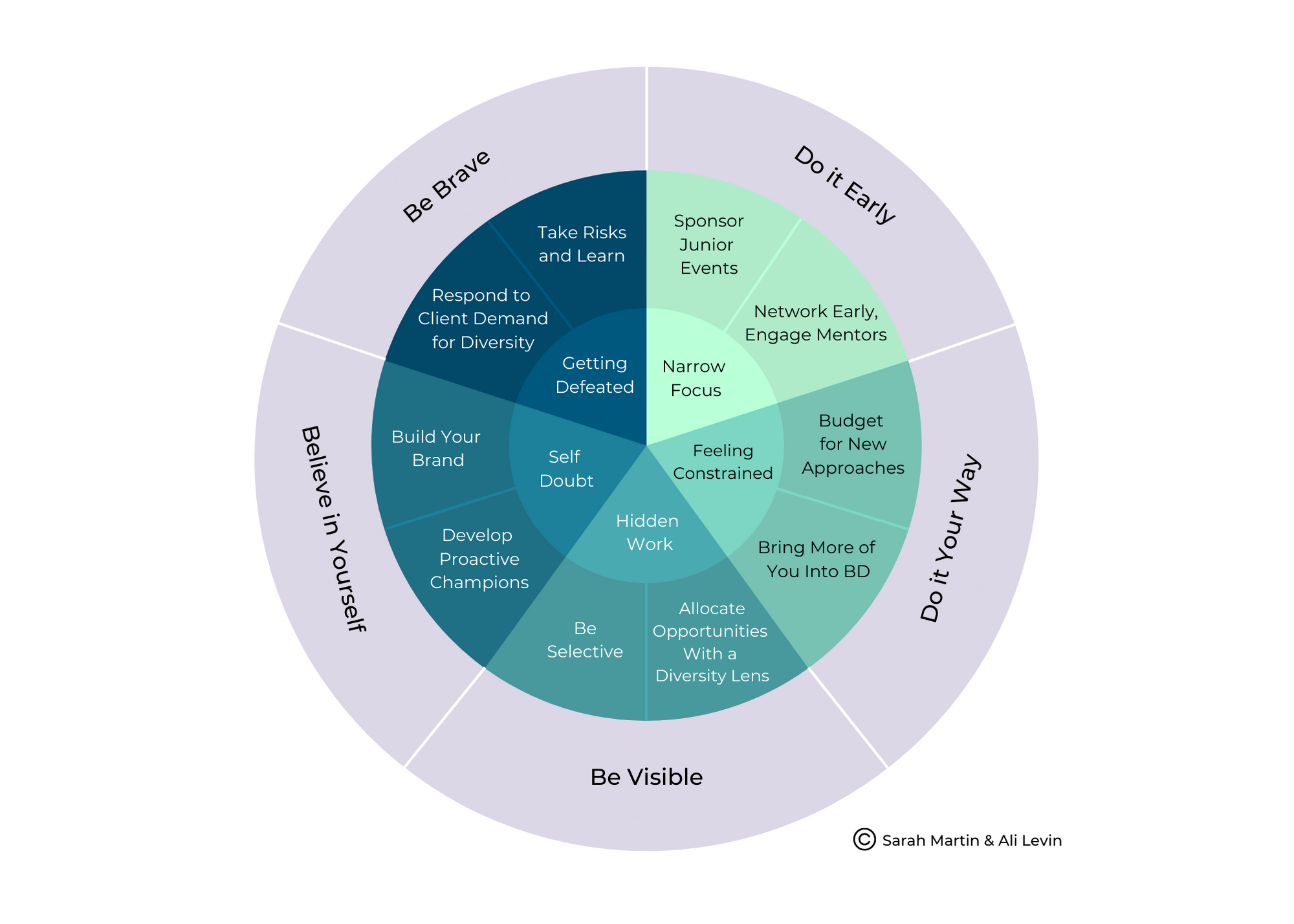‘It is no longer enough just to be an excellent lawyer to succeed in a law firm. You have to add value to a firm’s practice to be able to rise through the ranks. We need to empower young women to make business development a priority.’
As leadership development experts and executive coaches who have worked with over one hundred women in the law, we continue to see the challenges, both individual and systemic, that women experience in their progression to law firm leadership. The high attrition rates are well known. What are the keys to successful professional evolutions?
We interviewed 21 women partners, senior and junior, at top law firms from around the world including Linklaters, Clifford Chance, Skadden, White & Case and Hogan Lovells to find out what works well. We noted that interviewees were eager to share their practical wisdom in the hope of supporting a new generation of more diverse law firm leadership.
We found out that the mindset of all successful lawyers with good client relationship skills, regardless of gender, is not very different. However there are concrete actions individuals and firms can take to support women in developing business in their careers.
With our article we aim to empower young women to make business development a priority much earlier and integrate it into their daily lives. It outlines actions individual women can take now to improve their skills and, importantly, concrete steps firms can take to enable and support them.

As this graphic shows, young women lawyers may have too narrow of a focus early in their careers on putting their heads down and doing the billable work. Our research shows that helping women earlier to network and engage mentors and building a culture at firms where junior network events are not only encouraged but supported is critical.
We also found that women can feel constrained by more traditional approaches to business development that have largely been led by men. We suggest women find ways to bring more of themselves to business development and that firms be generous with budgeting for non-traditional and innovative approaches.
Another point made in our article that has resonated widely across our readership is the tendency for women to be allocated nonbillable work at law firms (sometimes referred to as 'the housekeeping') that neither builds their business nor their client relationships. We learned that women need to be empowered to be selective in saying yes and that firms need to be diligent in ensuring non business-related work is fairly allocated.
Self-doubt plays another role in hindering women in business development. We suggest not only that individuals engage in confidence coaching to build their brand, but that firms recognize the biases that exist about men being more credible. Firms need to be intentional about championing their women lawyers as serious and credible contributors.
Finally, business development is ultimately about putting yourself out there and taking risks. Fortunately, we learned that the client demand for a gender balanced team of lawyers is increasingly powerful. Firms that fail to include women lawyers in pitching for work, and genuinely including them in doing the work, do so at their peril.
The business case for diversity is stronger than ever in this COVID 19 world. Law firm client demand is proactive in requiring more diverse legal representation at all levels.
Firms need to act strategically to stem the attrition of female talent. We argue that helping more women to enjoy successfully developing business earlier in their careers is an essential element of that strategy.
Sarah Martin and Ali Levin are programme directors and coaches at the Saïd Business School, University of Oxford, and work as leadership coaches and organisational consultants.
OBLB categories:
OBLB types:
Share:
